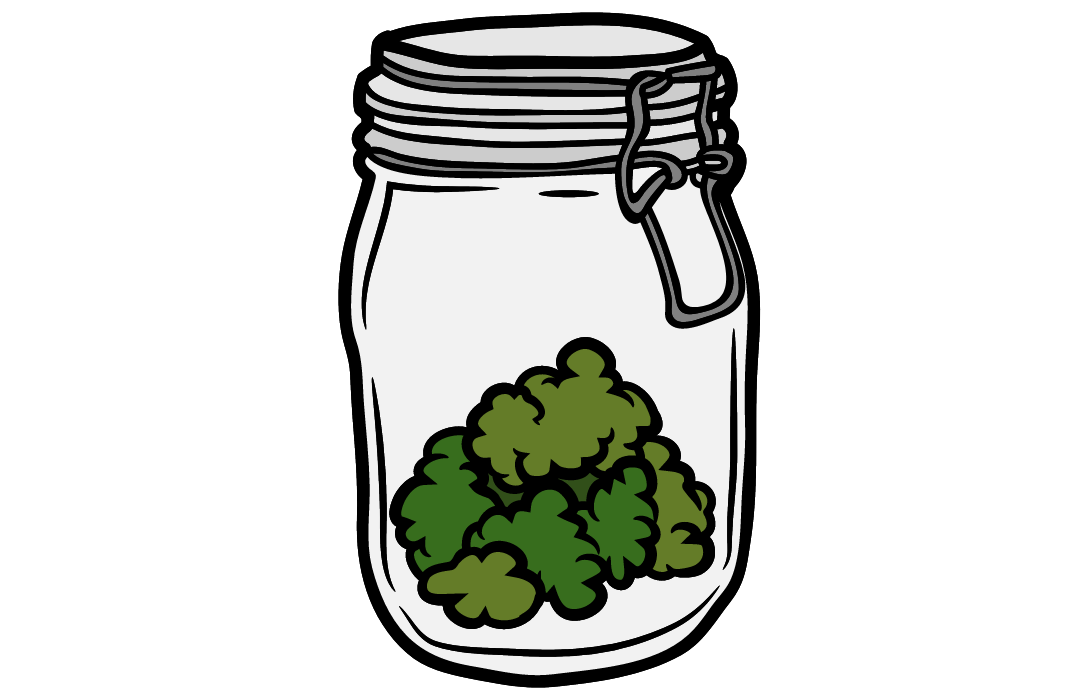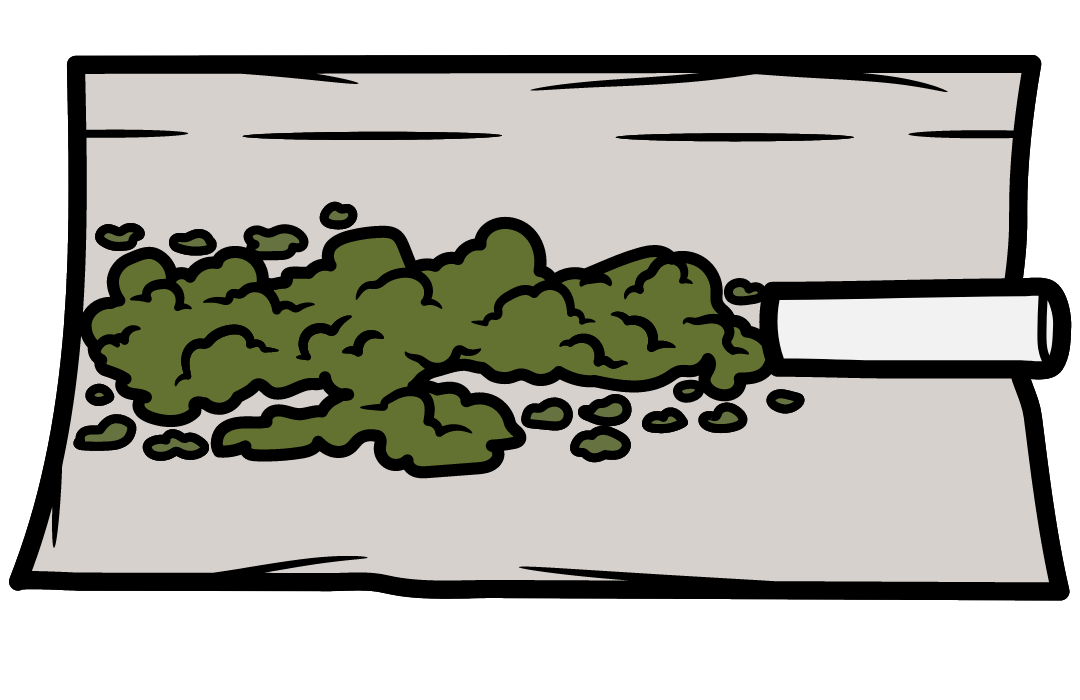A sort-of psychedelic: Cannabis and its mild magic
Why it's time to reeducate ourselves about this accessible tool for spiritual growth
Cannabis is misunderstood. We either dismiss it as a party drug, or we prescribe it as a medical treatment. But I think it’s high time we explore its potential as a tool for spiritual growth.
In Canada, where I live, the knowledge gap is striking. Since the federal government legalized cannabis about six years ago, my Toronto neighbourhood—Queen St. W.—has become a corridor of cannabis, with pot stores nestled between bars and cafés.
Bud tenders are the new bartenders, expertly guiding customers through options like Sativa vs. Indica, THC vs. CBD, high vs. low dose. Cannabis has become as common in Canada as alcohol.
Cannabis’ potential is underestimated
Yet, for all the availability, something significant is missing from the conversation.
Regulators have structured cannabis laws similarly to alcohol. And, in an effort to simplify options for consumers, cannabis brands have reinforced the perception that it's just a party drug. Buy today, remove a shitload of plastic packaging, smoke tonight.
Medical marijuana gets less attention, in part because it's more expensive and harder to access than its recreational counterpart. Still, it’s either one or the other, recreational or medical, and the Cannabis Act has different rules for the two. But we rarely discuss cannabis' deeper, more transformative potential.
It’s a collective blind spot, where the long and varied history of cultural use goes unacknowledged. In places like India, Tibet, and China, people have revered cannabis for centuries, using it to connect with the natural world and the spiritual realm. But in Canada, the sacred story of cannabis is largely absent.
Where are the discussions that frame cannabis as a plant with profound healing properties? Where is the recognition that this plant has been used for millennia to foster personal and communal growth?
To be clear, I’m not saying everyone should use cannabis in this way. Just that it could be used more intentionally. Currently, most people don't even know that's an option.
Indigenous peoples in Canada have long used plants like tobacco, sage, and sweetgrass in sacred rituals. However, cannabis is not native to this land. Likely brought by European settlers, its integration into Indigenous traditions is difficult to trace. The war on drugs and the broader colonial project disrupted any knowledge that may have formed in the 20th century. As a result, we’re left without established traditions or meaningful mythology to guide our use and inspire deeper exploration.
In our culture, we lack spiritual guides
The absence of a local cultural framework may explain our lack of accessible teachings. Without this context for seeing plants as allies with sacred significance, we’ve relegated cannabis to contemporary categories, missing the spiritual possibilities it offers.
A few people have tried integrating cannabis into existing practices. For example, “ganja yoga” classes in Toronto blend cannabis with yoga and reflective conversation, drawing on an ancient Indian tradition. But these classes are rare, and the stigma surrounding inhalation of substances in yoga circles complicates things. For people who aren’t into yoga, it’s also a nonstarter.
As psychedelics like psilocybin and ketamine gain attention for their therapeutic potential, cannabis often gets left out of the conversation. While it may not induce the same dramatic, mind-altering experiences as classic psychedelics, cannabis can still alter consciousness. It’s a gentle plant that opens doors to heightened awareness—when it’s approached with intention.
How I discovered cannabis’s psychedelic side
I first discovered cannabis’ spiritual qualities during a five-day retreat in Northern Ontario. It was led by a spiritual teacher, and participants were supported by a team of psychotherapists. I was delighted to discover that cannabis was being treated as a psychedelic in a process that included preparation, ceremony and integration.
This three-step process has roots in ancient traditions and has become a cornerstone of the modern psychedelic movement. From clinical research to underground therapy, spiritual retreats, and personal use, the process of preparation, ceremony and integration is considered just as important as the substances themselves.
After two days of preparation with a small group, I attended a three-hour cannabis ceremony inside a circular tent, deep in the forest. What followed was unlike anything I had experienced with cannabis before.
Pleasurable, spectacular and memorable
The ceremony was pleasurable and spectacular. I saw vivid visuals, and time seemed to stretch and bend. I felt alive in my body and free in my mind. Old memories and emotions resurfaced, allowing me to view them from a new, more compassionate perspective. It was truly a profound experience, and I’ll never forget it.
What set this experience apart from my usual trips was that it wasn’t just a temporary high. By talking about my experience with a small group, by recording my realizations in a journal, and by deciding to apply what I’d learned in my everyday life, I was transformed.
My cannabis retreat changed my life as a parent. I now relate to my teenaged son with more trust and openness, less control and rigidity. Cannabis, used in an intentional process, acted as a catalyst for evolution.
Cannabis as a legal psychedelic
In a world where psychedelics are gaining recognition for their therapeutic and spiritual potential, cannabis deserves a seat at the table. It’s an accessible, gentle option for adults curious about expanding their consciousness but hesitant about breaking the law. Its legal status offers a safer and more accessible pathway.
Maybe cannabis really is a gateway drug. But, contrary to war-on-drugs mythology, the gate could lead to transcendence rather than self-destruction. Older people and sick people don’t have time to wait for other psychedelic substances to be legalized, and they may not willing to break the law to have a healing experience.
If you're curious about how cannabis and other psychedelics can play a role in personal growth, I invite you to subscribe to my newsletter
. In the coming weeks, I plan to write about psilocybin, MDMA, ketamine, and ayahuasca, interviewing real people who have used them.





I find cannabis opens a window into my thoughts and emotions and helps me feel what I feel with greater clarity. It also heightens my connection to the world around me. I’m disappointed in the lack of research or discussion in Canada of its healing and spiritual elements, so I’m very happy you’re writing about this!
Very relatable, but sometimes I feel like the pleasure and insights comes at a cost because wherever I use it, it takes some time for me to readjust, and my attention wanes for a day of or two, maybe I'm doing it wrong?